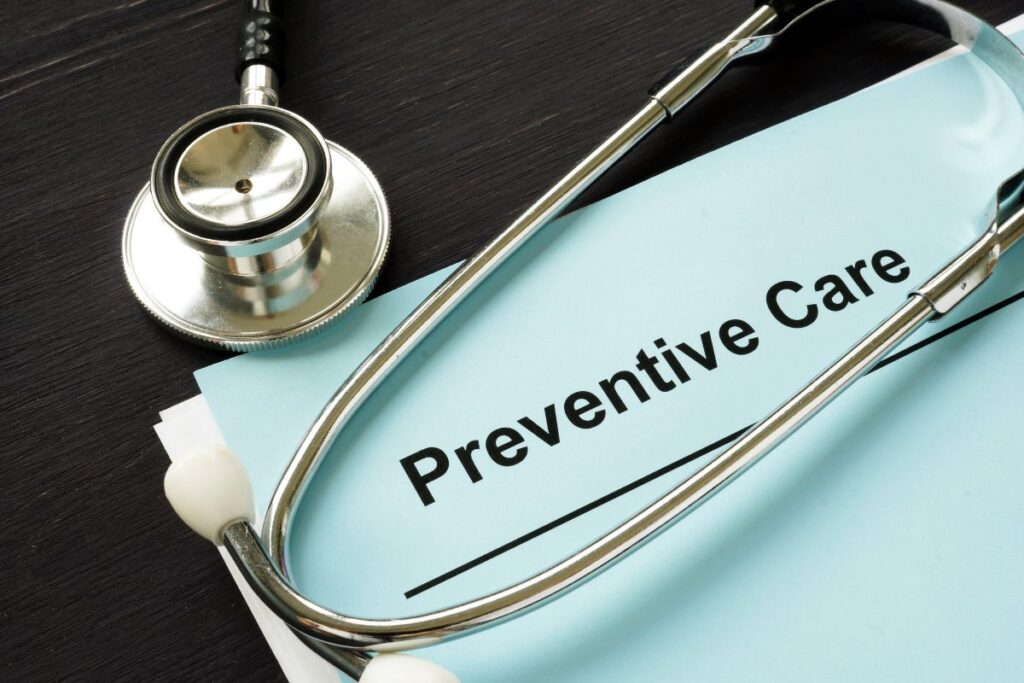The Importance of Preventative Care: Taking a proactive approach to your health is essential for living a long and fulfilling life. While reactive care, like treating illnesses after they arise, plays a crucial role in healthcare, the importance of preventative care cannot be overstated. Regular check-ups with your doctor are not just about addressing immediate concerns; they are a cornerstone of preventative medicine, allowing for early detection of potential health problems and promoting overall well-being.
Why Regular Check-Ups Are Essential
Many people may hesitate to schedule regular check-ups, especially if they feel healthy. However, the benefits of preventative care are undeniable. Here’s why scheduling those doctor visits is crucial:
-
Early Detection of Disease: Diseases like heart disease, cancer, and diabetes often progress silently without any noticeable symptoms in the early stages. Regular check-ups allow doctors to detect these conditions early, when they are most treatable. Early detection significantly improves treatment success rates and long-term health outcomes.
-
Reduced Risk of Complications: Catching a health issue early allows for prompt intervention and treatment, preventing it from developing into a more serious condition. This can significantly reduce the risk of complications, hospitalizations, and the need for more invasive procedures.
-
Personalized Healthcare Plan: Regular check-ups allow your doctor to understand your individual health history, risk factors, and lifestyle habits. This information empowers them to create a personalized healthcare plan that addresses your specific needs. This plan may include preventive measures like vaccinations, dietary recommendations, and exercise programs.
-
Improved Overall Health: Preventative care goes beyond just disease detection. Regular check-ups allow your doctor to monitor your overall health, including your blood pressure, cholesterol levels, and weight. This comprehensive approach can identify potential health risks and lead to lifestyle changes that promote overall well-being.
-
Peace of Mind: Knowing you are taking proactive steps to maintain your health can provide significant peace of mind. Regular check-ups can alleviate anxieties about potential health problems and empower you to take control of your well-being.
What to Expect During a Preventative Care Check-Up
The specific components of a preventative care check-up will vary depending on your age, gender, and health history. Generally, it may include:
-
Review of Medical History: Your doctor will discuss your medical history, family history, and any current symptoms you may be experiencing.
-
Physical Examination: This may involve a physical exam to assess your overall health, including blood pressure, heart rate, and lung function.
-
Laboratory Tests: Blood tests, urine tests, and other lab tests may be recommended to screen for potential health problems and monitor your overall health status.
-
Vaccinations: Preventative care includes ensuring you are up-to-date on recommended vaccinations, which protect you from serious infectious diseases.
-
Lifestyle Counseling: Your doctor may discuss your lifestyle habits, such as diet, exercise, and sleep, and provide recommendations for maintaining or improving your overall well-being.
Preventative Care
Here are some tips to make preventative care a regular part of your life:
-
Schedule Regular Check-Ups: Talk to your doctor about how often you should schedule preventative check-ups. This frequency will vary depending on your age, health history, and risk factors.
-
Find a Doctor You Trust: Having a good doctor-patient relationship is crucial for effective preventative care. Find a doctor you feel comfortable talking to openly and honestly about your health concerns.
-
Be Prepared for Your Appointment: Make a list of any questions or concerns you have for your doctor before your visit. This will ensure you make the most of your appointment.
-
Follow Through with Recommendations: If your doctor recommends further tests, medications, or lifestyle changes, be sure to follow through with these recommendations. Consistency is key to maximizing the benefits of preventative care.
-
Stay Informed: Educate yourself about preventive health measures for your age and gender. The National Institutes of Health (https://www.nih.gov/) is a valuable resource for reliable health information.
Investing in Your Health: The Payoff of Preventative Care
Preventative care is not just about avoiding future health problems; it’s an investment in your overall well-being and quality of life. Regular check-ups can save you money in the long run by preventing costly medical interventions and hospital stays. More importantly, they empower you to take control of your health and live a longer, healthier life. By prioritizing preventative care, you are taking a proactive step towards a brighter and healthier future.

